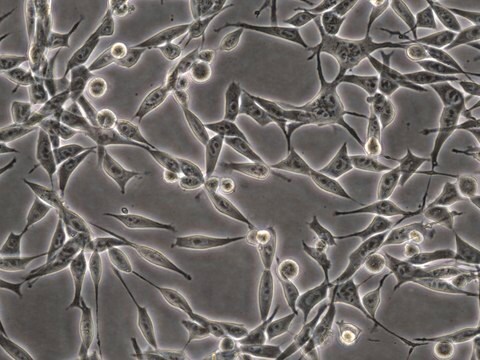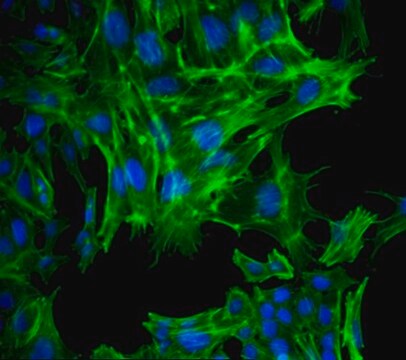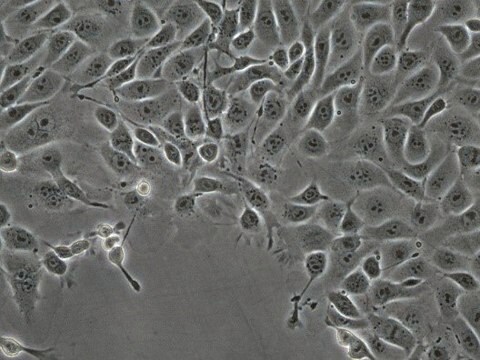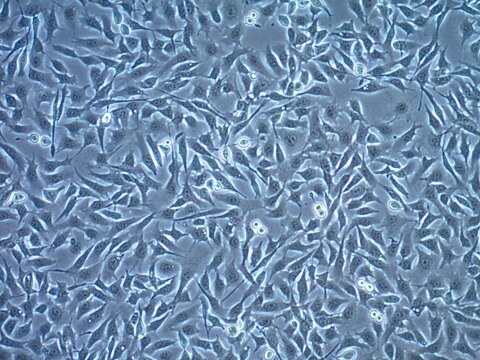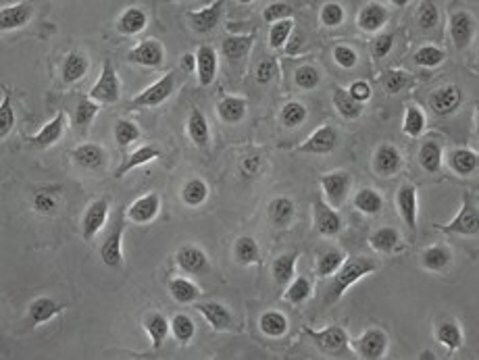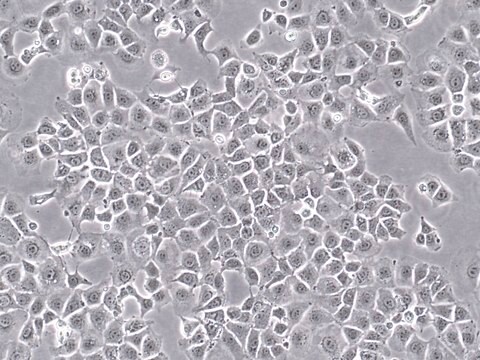SCC173
MCA205 Mouse Fibrosarcoma Cell Line
Mouse
Synonym(s):
MCA-205, MCA 205
About This Item
Recommended Products
Product Name
MCA205 Mouse Fibrosarcoma Cell Line, MCA205 mouse fibrosarcoma cell line is an excellent model for studying immune response to tumor cells and the development of targeted cancer immunotherapies.
biological source
mouse
technique(s)
cell culture | mammalian: suitable
shipped in
ambient
General description
Source:
Non-GMO. MCA-205 was derived from 3-methylcholanthrene-induced fibrosarcoma in C57BL/6 mice. Tumors were maintained in vivo by serial subcutaneous transplantation in syngeneic mice and single-cell suspensions were prepared from solid tumors by enzymatic digestion . From these cells the MCA-205 cell line was established and maintained in vitro.
Cell Line Description
Application
Cancer
Oncology
Quality
• Cells are tested negative for infectious diseases by a Mouse Essential CLEAR panel by Charles River Animal Diagnostic Services.
• Cells are verified to be of mouse origin and negative for inter-species contamination from rat, chinese hamster, Golden Syrian hamster, human and non-human primate (NHP) as assessed by a Contamination CLEAR panel by Charles River Animal Diagnostic Services.
• Cells are negative for mycoplasma contamination
Storage and Stability
Disclaimer
Storage Class Code
12 - Non Combustible Liquids
WGK
WGK 2
Flash Point(F)
Not applicable
Flash Point(C)
Not applicable
Certificates of Analysis (COA)
Search for Certificates of Analysis (COA) by entering the products Lot/Batch Number. Lot and Batch Numbers can be found on a product’s label following the words ‘Lot’ or ‘Batch’.
Already Own This Product?
Find documentation for the products that you have recently purchased in the Document Library.
Our team of scientists has experience in all areas of research including Life Science, Material Science, Chemical Synthesis, Chromatography, Analytical and many others.
Contact Technical Service